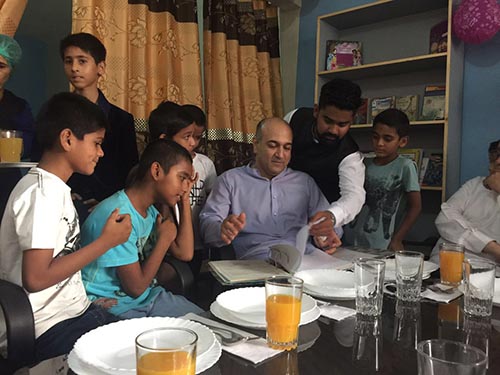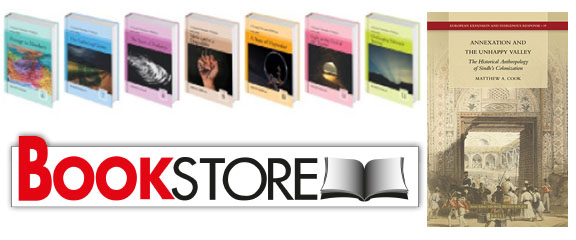“Not, how did they die, but how did they live?
Not, what did they gain, but what did they give?
These are the units to measure the worth
Of a person as a person, regardless of birth.”
— ANONYMOUS
I first met Hunaid Lakhani in July 2010 in Boston. I was there to interview Prof Noam Chomsky, and he was attending an entrepreneurship workshop at Harvard University. I was immediately impressed with his humble demeanour. I could tell in the first meeting that this young man was more than a Pakistani seth.
We stayed in touch with occasional eid mubarak messages on WhatsApp and often shared memes in the spirit of levity. We met again in New York during the 2016 Christmas, where I was privileged to host him. We talked at length and walked around Times Square. During our conversation, not only was he open to opposing views and new ideas, but he sought to understand the motivations and obstacles of others.
After dinner at midnight, he asked if we could get ice cream from the street vendor. Cognizant of his status, I suggested some lovely places in Manhattan. We walked to Rockefeller Center in the snow and minus 20 Celcius temperature to get the ice cream. The look on his face was delightful. I have never seen an adult enjoy ice cream like Hunaid.
Altruism
Hunaid showed empathy and selfless concern for the welfare of others and ventured to alleviate the struggles of others without seeking anything for his benefit. Like a true philanthropist, he acted without expectation of compensation or recognition of his efforts. Hunaid understood that education transforms lives and breaks the cycle of poverty that traps so many children. I recall him saying (I paraphrase), “education for girls is essential — an educated mother will ensure her children attend and stay in school.
That was before the coronavirus pandemic hit and turned an education crisis into a catastrophe that will have overwhelming short- and long-term consequences. At the beginning of the pandemic, I received a message asking for a recommendation for a Learning Management Solution (LMS).
Real Change
People who want to make positive changes in the world tend to look far into the future. They want to make a lasting impact on society rather than temporarily fixing a problem and recognize that they must direct their efforts accordingly. They realize that for a significant societal change, it is crucial to address underlying structural issues by investing in long-term solutions. Hunaid understood that the pandemic was impacting not only his university but millions of students in Pakistan.
To make structural changes in society, it is also necessary for philanthropists to advocate for political change. That is why Hunaid was active in local politics. He recognized the importance of investing in programmes for quick and tangible results; advocacy is also important because it allows progress on a broader scale. He sought specific causes to support rather than organizations. He understood that particular organizations might be able to tackle one aspect of the problem best and then look for other groups to work on different aspects of the issue. He maintained a holistic view of the issue and used many tools to catalyze these changes.

Bahria Campus Launch
In December 2020, I welcomed Hunain Lakhani to the stage at the launch of the Bahria Campus. Here is how I introduced him:
“From education to politics, Hunaid Lakhani, founder and founding chancellor of Iqra University, has established a platform where youth from all walks of life can prosper.
After graduating in Business Administration from American College, Los Angeles, in 1997, Mr Lakhani attended the Owner-President Management Programme at Harvard Business School in 2006. In 1998, Mr Lakhani built Iqra University, an institute for every Pakistani irrespective of social class. As head of Bait ul Mal Sindh, he actively participates in social welfare projects.”
Later on, when I moved to Pakistan and worked for Iqra University, I realized that his contributions were investments in society and the economy. He wanted his money and resources to be used efficiently to promote self-sustaining change. Hunaid looked at issues through a business lens, treating his philanthropic work with the same work ethic as his real estate and education business. Hunaid utilized his resources, networks, and social standing to advance a cause, just as he would to advance a corporate objective. This broad perspective compelled him to extend his support to for-profit businesses and legislative proposals that will increase the cause and charitable groups.
When I briefly met the current Chancellor of Iqra University, Erum Lakhani, in Dubai early this year, she mentioned something that stuck in my mind. She said, “even when Hunaid was very young, he used to talk about building a university with grand architecture.” He fulfilled his dream and more.
I have shared many laughs, strategic sessions, and (few) heated conversations. We broke bread, prayed together and tried to launch an innovative edtech solution. Still, I will remember Hunaid for his kindness, vision and humility.
Hunaid Lakhani left too soon, but he accomplished what most won’t even if they live to 100.



